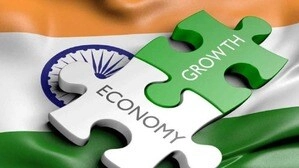The Trump administration has strategically leveraged the ongoing India-Pakistan conflict as part of its rationale for imposing tariffs on various goods. This approach is emblematic of how geopolitical tensions can influence economic policy, particularly in the context of trade relations. By framing the tariffs within the narrative of national security and foreign policy, the administration sought to justify its actions to both domestic and international audiences. The backdrop of escalating hostilities between India and Pakistan provided a convenient justification for implementing tariffs, as the administration argued that such measures were necessary to protect American interests in a volatile region.
In legal arguments presented in court, the Trump administration emphasized that the instability in South Asia could have broader implications for global trade and security. By citing the India-Pakistan conflict, officials aimed to underscore the need for protective economic measures that would shield American industries from potential fallout. This tactic not only reinforced the administration’s hardline stance on trade but also illustrated how complex international dynamics can be intertwined with domestic economic strategies. The administration’s justification for tariffs, rooted in national security concerns, was an attempt to position these economic policies as not just beneficial but essential for safeguarding American interests in a rapidly changing geopolitical landscape.
Critics of the administration’s approach argued that using the India-Pakistan conflict as a pretext for tariffs was a misappropriation of foreign policy issues to bolster economic arguments. They contended that such tactics could undermine the legitimacy of U.S. foreign policy and create confusion regarding the true motivations behind trade decisions. Furthermore, the reliance on international conflicts to justify domestic economic measures raised questions about the ethical implications of using foreign policy as a bargaining chip in trade negotiations. As the legal challenges to these tariffs unfolded, the intersection of foreign policy and trade policy continued to be a focal point of debate, reflecting the intricate and often contentious relationship between global affairs and national economic strategies.
Ultimately, the Trump administration’s approach to tariffs, particularly in the context of the India-Pakistan conflict, highlighted the complexities of modern governance where trade policies are increasingly influenced by international relations. As the administration navigated these waters, it became clear that the implications of such actions extended beyond economic outcomes, affecting diplomatic relationships and the United States’ standing on the global stage. The unfolding narrative served as a reminder of how interconnected the realms of foreign policy and economic strategy have become, and the potential risks involved in using one to justify the other.




